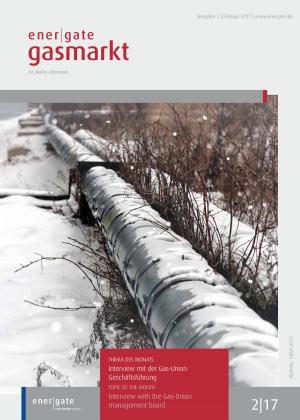Gas-Union is one of the regional wholesale companies that were located on the second layer of the traditional German delivery chain (between the importing gas companies and utilities). The shareholders are Mainova (34.27 %), Uniper (23.57 %), Kraftwerke Mainz– Wiesbaden (a joint venture of the two utilities Mainzer Stadtwerke and ESWE Versorgung Wiesbaden 15,91 %), Städtische Werke Kassel (9.18 %), Stadtwerke Essen and Energieund Wasserversorgung Mittleres Ruhrgebiet (EWMR) (each 5 %). Gas-Union holds the missing 1.8 per cent itself. The traditional delivery chain was dissolved ten years ago (some producers and gas importing companies still seem to be struggling over the exact date in arbitration procedures). After the dissolution, most market observers expected a quick disappearance of the regional gas companies. This has happened – at least when it comes to sales activities – but only to companies where either RWE or E.ON were the majority shareholders. Bayerngas, Enovos, GasVersorgung Süddeutschland (GVS) and Gas-Union continued to enjoy life. All companies changed over the last year and adjusted their business models to the changing market conditions. Now the companies face new challenges. ener|gate Gasmarkt is reporting continuously about these developments. All of the companies have to cope with thin sales margins. The storage and upstream businesses are big issues for some of the companies. Since 2007, Gas-Union has developed a small upstream segment and extended the storage business substantially over the last years. These are two segments that are currently causing trouble. The earnings for 2015 were not satisfactory (ener|gate Gasmarkt 08/16). ener|gate Gasmarkt talked to the two managing directors Oliver Malerius and Jens Nixdorf about the future strategy of the company.
ener|gate Gasmarkt: Mr Malerius, Mr Nixdorf, to start with, what will the sales volumes and earnings be for 2016?
Mr Nixdorf: The volume will be the same as in 2015. We can’t comment on the profitability because the annual profit and loss will not be determined before March. But what I can say is that 2016 will certainly be a transitory year again with earnings that are, as was the case in 2015, not satisfactory. But in 2018 at the latest we will achieve a reasonable level again.



